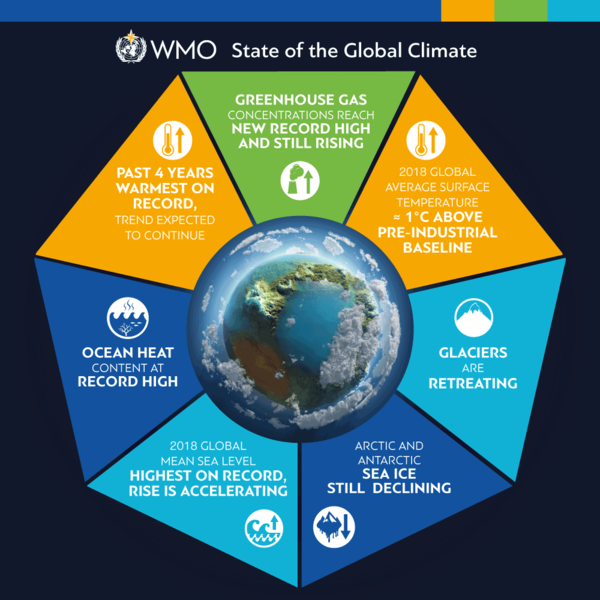
December 14, 2020 Monday

MANILA, 15 December 2020 — Deputy Speaker and Antique Representative Loren Legarda called for increased global climate ambition as global warming advances rapidly this year, making 2020 one of the warmest years ever recorded.
According to the 2020 provisional State of the Global Climate report by the UN World Meteorological Organization (WMO), the year 2020 is set to be one of the three warmest years on record with the average global temperature at about 1.2°C above pre-industrial levels, despite a cooling effect of the La Niña phenomenon. This decade (2011-2020) will be the warmest decade on record; the six warmest years on record have all been in the past six years (2015-2020) and the trend is set to continue due to the increasing heat-trapping greenhouse gases (GHG) in the atmosphere.
The report, which is based on temperature data from January to October this year, shows how high-impact events including extreme heat, wildfires, and floods affected millions of people, compounded threats to human health and security and economic stability posed by the COVID-19 pandemic.
Despite the COVID-19 lockdown, which reduced industrial activities and decreased air traffic, atmospheric concentrations of GHG continued to rise, committing the planet to further warming for many generations to come because of the long lifetime of CO2 in the atmosphere, according to the report.
The WMO assessment is based on five global temperature datasets, all of which currently place 2020 as the 2nd warmest for the year to date, following 2016 and ahead of 2019. The difference between the warmest three years is small, however, and exact rankings for each data set could change once data for the entire year are available. The final 2020 report will be published in March 2021.
The Paris Agreement states that countries must act to prevent the global average temperature from rising more than 2°C and use whatever measures possible to limit this rise to 1.5°C. But with temperatures expected to continue rising, the WMO arrives at the estimation of a one-in-five chance of it temporarily exceeding 1.5°C by 2024. Such global warming will intensify extreme weather events such as floods, forest fires and droughts.
In 2020, several regions of the world were grappling with wildfires of record sizes. All these fires propelled clouds of smoke to high altitudes that circled the Earth while adding even more carbon dioxide to the greenhouse gases in our atmosphere.
With 96 cyclones and storms, statistics for the year 2020 are well above the historical average. Floods in different parts of the world, including the Philippines, displaced large numbers of people and undermined food security for millions. More than 50 million people have suffered a double impact this year: climate disasters and pandemics. 10 million people turned into “climate refugees”, who had to leave their homes due to these extreme weather events.
“This assessment attests that the entire planet is under a climate emergency, and that failure to reduce global greenhouse gas emissions and to build the adaptive capacities of communities to climate change at the same time would lead to unprecedented loss to human society, environment, and the global economy,” Legarda said.
Although the pandemic has been the biggest concern to many people in 2020, for millions in climate-vulnerable places, Legarda stressed that the climate emergency remains one of the biggest threats to human survival, and only greater ambition and urgent action in reducing the GHG emissions could help the world meet the necessary scale and pace to evade the catastrophic effects of our changing climate.
“Developed countries, historically responsible for the climate crisis, should step up their climate action to achieve the 1.5°C long-term temperature goal of the Paris Agreement. This is to spare vulnerable countries like us from the continuous cycle of loss and damage,” Legarda concluded.